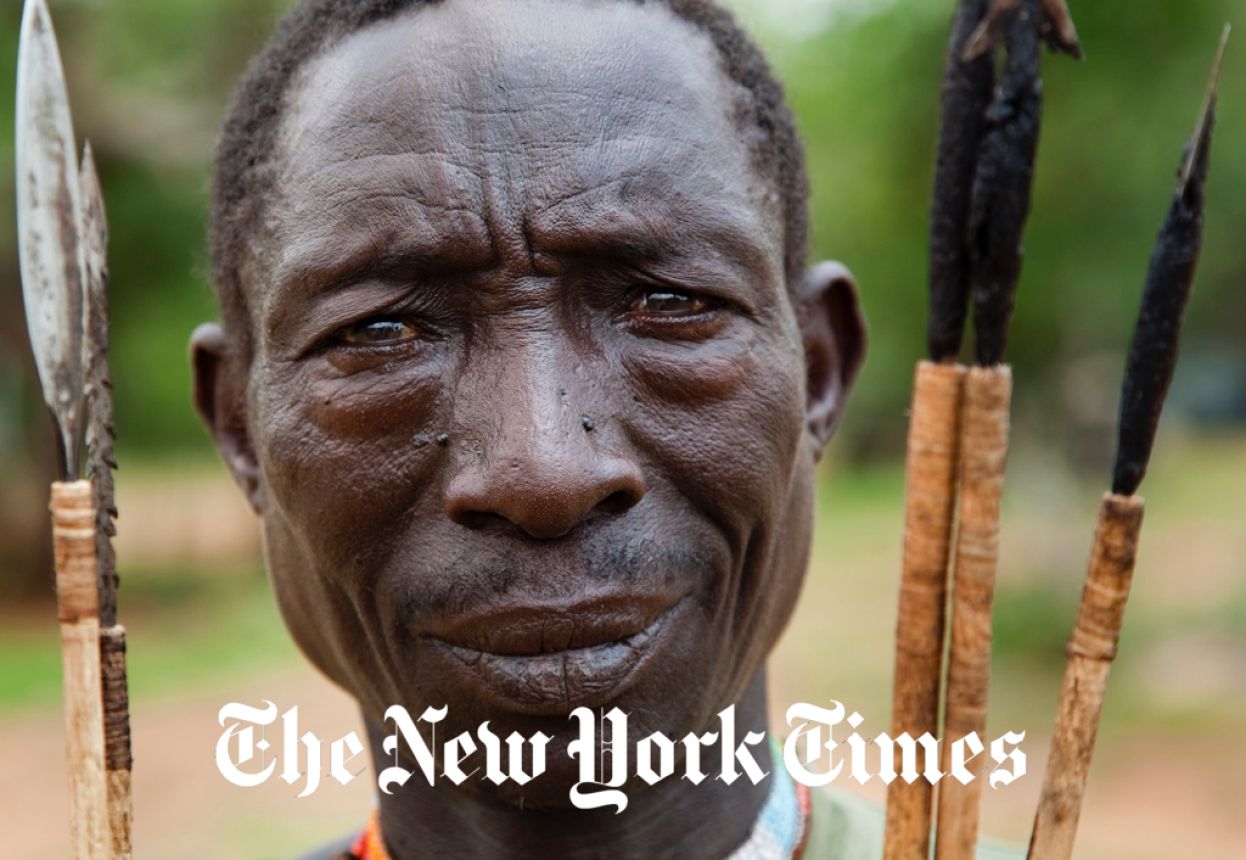Hadza Review: The New York Times
Cellphones and the Web? No, Hunting and Gathering
In ‘The Hadza,’ Tanzanians Live as They Did Centuries Ago
By: Anita Gates
If you search for the term hunter-gatherers, you’ll probably end up reading about early human civilization, before our ancestors got into agriculture around 10,000 B.C. Or you may be led to Bill Benenson’s lovely documentary The Hadza: Last of the First, about a people in Tanzania who live that way today and remind us what a sustainable way of life really looks like and how ridiculously far away we are.
On land that the Hadza have inhabited since thousands of years before the Great Pyramids of Egypt were built, the women dig in the ground for tubers; the men hunt animals with bows and arrows; everybody eats lots of honey; and the children say they don’t want to end up anywhere else because they wouldn’t have the baobab fruit of home. Good luck to them: The Hadza’s territory is rapidly shrinking (as a depressing graphic shows).
Articulate and sympathetic experts, a calmly authoritative narrator (Alfre Woodard), powerfully conversational subtitles and breathtaking scenery enliven the film’s message, which, unfortunately, seems to be that the end of this way of life is just a matter of time. (And not very much time.) If that assessment is on target, the most encouraging thing that can be said to the Hadza right now is that at least they’ll have a movie to show their grandchildren what it was like.
